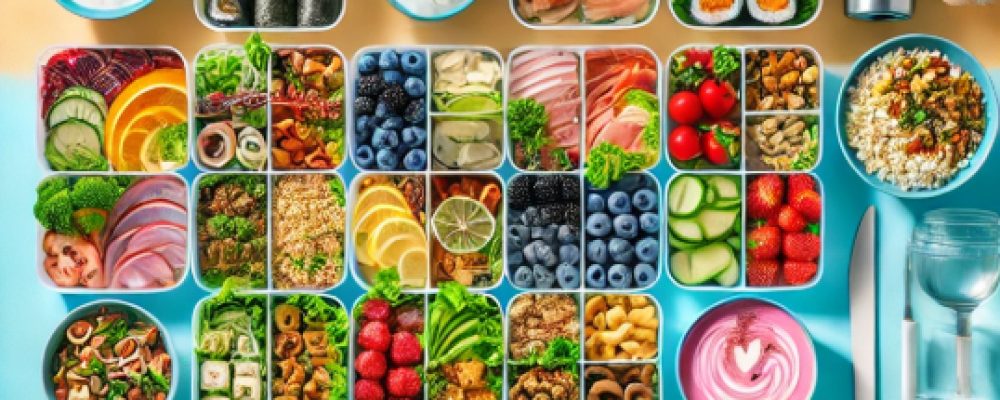Designing a personalized, high-quality meal plan is one of the most important steps towards achieving your wellness goals. Whether you’re aiming to lose weight, gain muscle, improve energy levels, or manage a health condition like diabetes, a thoughtfully crafted nutrition strategy will serve as the backbone of your success. In Dubai, where a fast-paced lifestyle and culinary temptations often go hand in hand, it becomes even more essential to have a structured plan that aligns with both personal needs and the region’s unique environment. Fortunately, services like meal plans dubai make it easier than ever to access custom-designed menus that match local preferences, dietary requirements, and fitness goals.
Meal planning in a vibrant, multicultural city like Dubai must consider more than just calorie counts. Residents often navigate long working hours, intense heat, diverse cuisines, and frequent social events. Therefore, a meal plan must be not only nutritionally sound but also flexible, culturally inclusive, and convenient. The objective is to strike the perfect balance between consistency and adaptability—something that can be achieved by building your strategy around a few critical pillars, such as nutritional diversity, portion control, and realistic scheduling. Below is a checklist of the core elements that define a high-quality meal plan, tailored to life in Dubai.
Essential Components of a High-Quality Meal Plan
- Caloric Targeting Based on Goals – Understanding your Total Daily Energy Expenditure (TDEE) and aligning your intake accordingly (deficit for fat loss, surplus for muscle gain).
- Macronutrient Balance – A personalized ratio of carbohydrates, proteins, and fats depending on your activity level and body type.
- Meal Timing and Frequency – Distributing meals throughout the day to stabilize blood sugar, avoid overeating, and support energy levels.
- Hydration Strategy – Adequate water and electrolyte intake, especially crucial in Dubai’s hot and arid climate.
- Cultural and Dietary Preferences – Incorporating foods from Middle Eastern, South Asian, or Western diets based on your background and taste.
- Meal Prep Feasibility – Time-efficient cooking or leveraging healthy delivery options suited to Dubai’s busy lifestyle.
- Supplementation (if needed) – Vitamins, minerals, or performance boosters based on dietary gaps or fitness goals.
- Monitoring and Adjustments – Using apps or trackers to review progress and tweak the plan as needed.
Each point above contributes to the sustainability and practicality of a meal plan. For example, without clear caloric targeting, it’s easy to over- or under-eat. Similarly, meal prep feasibility ensures that your plan doesn’t remain theoretical—time constraints are one of the biggest reasons people give up. In a dynamic city like Dubai, where people from over 200 nationalities coexist, a quality plan also embraces global cuisines and is respectful of religious or cultural dietary restrictions (e.g., halal meat, fasting during Ramadan).
Sample Weekly Meal Plan for an Active Professional in Dubai
| Day | Breakfast | Lunch | Dinner | Snacks |
| Monday | Greek yogurt + berries + nuts | Grilled chicken with quinoa | Baked salmon + sautéed spinach | Banana, protein shake |
| Tuesday | Oats with almond milk & dates | Chickpea salad with avocado | Beef stir-fry + brown rice | Hummus + cucumber sticks |
| Wednesday | Scrambled eggs + tomatoes | Grilled shrimp + couscous salad | Chicken curry + cauliflower rice | Mixed nuts, apple |
| Thursday | Smoothie bowl (banana, oats) | Turkey wrap + green salad | Lamb kofta + grilled vegetables | Boiled egg, dark chocolate |
| Friday | Whole wheat toast + eggs | Lentil soup + pita | Sushi rolls + miso soup | Greek yogurt + honey |
| Saturday | Chia pudding + mango | Shawarma bowl with lean meat | Grilled tuna + veggie stir-fry | Dates, protein bar |
| Sunday | Pancakes with almond butter | Vegan falafel bowl + tahini | Roast chicken + sweet potato mash | Cottage cheese, berries |
This plan showcases variety, balance, and regional sensitivity. It includes Mediterranean staples like hummus, Middle Eastern favorites like falafel and shawarma, and global trends like smoothie bowls and sushi. It also considers practical workweek patterns in Dubai—lighter meals on Friday and weekend indulgences on Sunday are common practices. Snacks are strategically placed to prevent energy dips and support metabolism.
What makes this type of plan truly effective is its adaptability. For example, if you’re fasting during Ramadan, you can shift your meals accordingly—consuming nutrient-dense foods at suhoor and iftar. If you’re plant-based, alternatives like tofu, tempeh, and legumes can easily replace animal proteins in the table. Similarly, for those with gluten sensitivity or lactose intolerance, Dubai offers ample substitutes like almond flour pancakes or lactose-free yogurts. The plan serves as a flexible foundation that can evolve with your lifestyle, making consistency far more achievable.
From Strategy to Lifestyle – Turn Your Plan Into Power
A well-thought-out meal plan is more than a temporary fix—it is a long-term strategy that empowers you to live better, think clearer, and feel stronger. Especially in a city like Dubai, where opportunities are endless and expectations are high, fueling your body properly can become your competitive edge. Whether you’re relying on professional help such as meal plans Dubai or creating your own weekly schedule, remember that sustainability, variety, and personalization are key. The perfect plan is not the strictest or the most glamorous—it’s the one you can actually follow, enjoy, and benefit from over time. Make your plate a reflection of your goals, culture, and ambition. Let your nutrition work for you, not against you.




